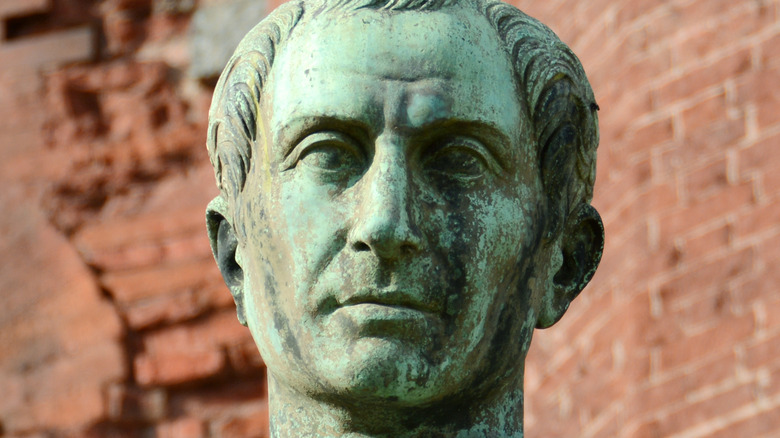What Really Happened After Julius Caesar Died?
Today, Julius Caesar is remembered for three things: his brilliance as a general, the great political power he wielded, and the grim nature of his assassination at the hands of those who feared him.
As History News Network reports, Caesar was stabbed to death by several members of the Senate in a hall next to Pompey's theater in Rome, on March 15, 44 B.C. The assassins struck with their concealed daggers, according to them, to wrest the Republic of Rome from the hands of a man whose power had grown too great and threatened to rule as a tyrant. However, Michael Parenti argues in his "The Assassination of Julius Caesar: A People's History of Ancient Rome" (via History News Network) that the assassins' motive was different: Caesar's popularity with the common people threatened their privileged way of life.
According to Josiah Osgood's "Caesar's Legacy: Civil War and the Emergence of the Roman Empire," via Daily History, the assassins, supposedly acting for the good of Rome, expected mass support. The people of Rome, however, were apparently unsure and afraid. Caesar had not been universally popular, that being impossible, but he was respected for his influence and victories.
Caesar's adoptive son became the emperor the assassins feared
Mark Antony, per Britannica, had been loyal to Caesar since the civil war between the latter and political rival Pompey in 49 B.C. He led forces against Caesar's assassins. First, he used his influence to arrange that the assassins would be able to keep their positions, in an effort to ease the unrest in the city that followed.
Caesar's heir, Britannica goes on, was Octavian, his adoptive son. Octavian, just 19, rose as a political threat to Antony, who promptly abandoned the path of appeasement. Bitter political maneuvering and direct warfare followed. In the year 42, Marcus Brutus and Gaius Cassius (leaders of the plot) were defeated in the Battle of Philippi. Antony, Marcus Lepidus, and Octavian fought in support of Caesar, and their foes' deaths meant that there was nobody left to support the concept of Rome as a Republic.
The men divided the empire between themselves, but a later alliance between Antony and Cleopatra of Egypt was opposed by Octavian. Opposite sides were drawn again, and Octavian's victory at Actium in 30 B.C. led to the deaths of Cleopatra and Antony. Just four years later, per History, the Roman Senate gave Octavian the honorific Augustus, and he became Rome's first de facto emperor under the name. The very thing the assassins purportedly feared: all that power vested in one person.

